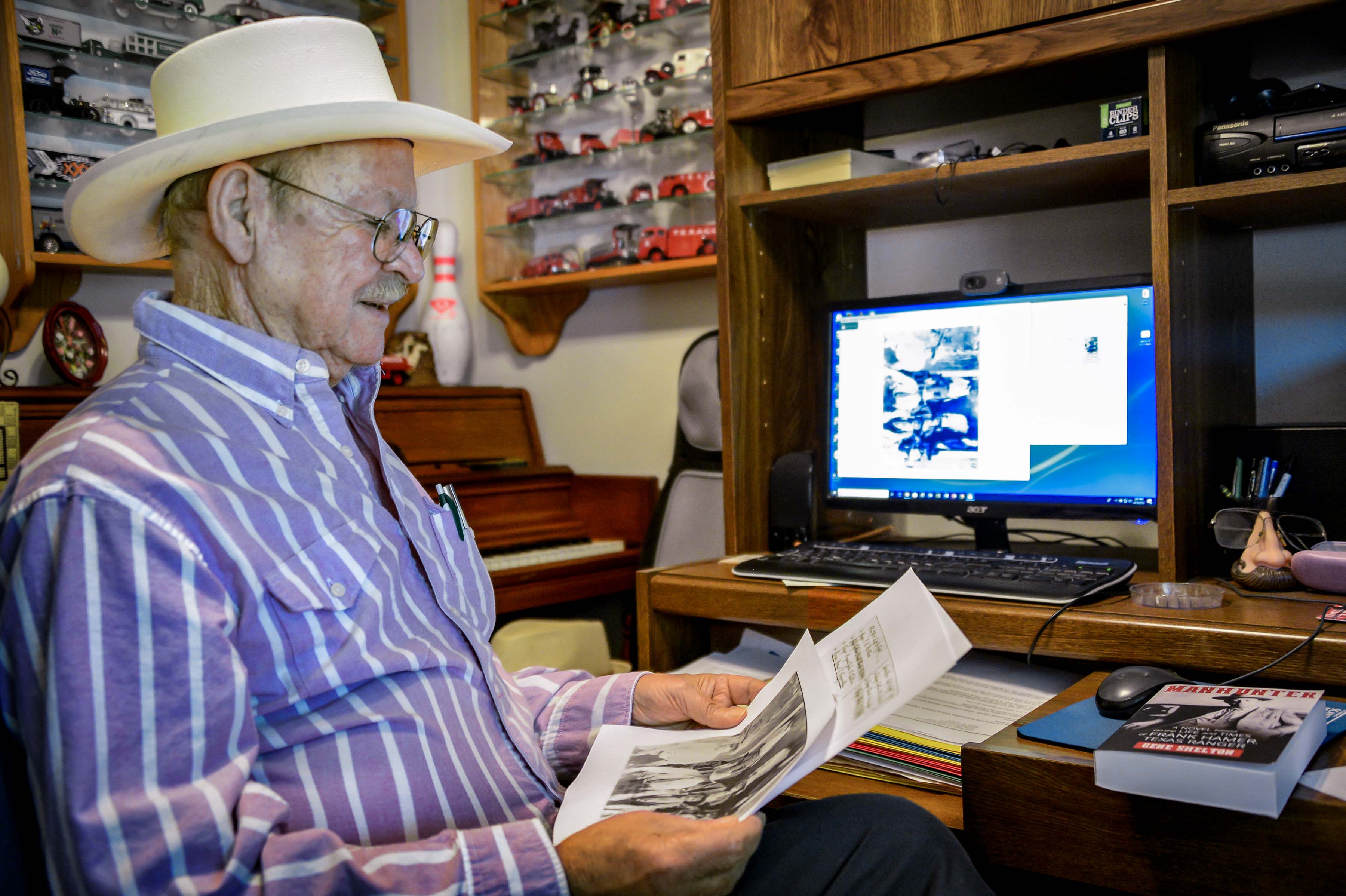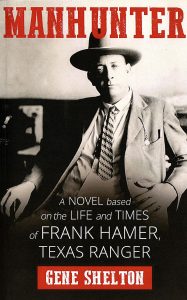
Gene Shelton in his office.
Surrounded by filing cabinets and shelves stuffed with books in his home office in Sulphur Springs, Gene Shelton leans back in his chair and examines a photograph. Its caption reads, “Headquarters, Company C, Texas Rangers, Del Rio, Texas, 1921.”
“That’s him,” he says, pointing to an unsmiling man in the front row wearing a white shirt and tie, the requisite Western hat. “That’s Frank Hamer.”
The recent release of the movie The Highwaymen on Netflix has introduced a new generation to Hamer, a famed Texas Ranger. Starring Kevin Costner as Hamer and Woody Harrelson as his sidekick, Manny Gault, the film recounts the chase and ambush of Clyde Barrow and Bonnie Parker—the notorious robbers and killers who carved a swath of terror throughout the South and Midwest in the 1930s until their deaths in Louisiana on May 23, 1934.
Now, 85 years later, the film by John Lee Hancock aims to provide a historically accurate account of how Bonnie and Clyde, who captured the public’s imagination with their daring exploits, met their deaths in a fusillade of bullets.

The Highwaymen has also brought about a revival in book sales for Shelton’s fictional biography of Frank Hamer, first published in 1997 and republished in 2017 under his Pecos Press imprint. Shelton, who worked as a newspaper journalist for 35 years, did meticulous research for Manhunter: A Novel based on the Life and Times of Frank Hamer, Texas Ranger. He spent hours in the Texas Ranger Museum in Waco, interviewed Hamer’s children and grandchildren, and pored over newspaper microfilms.
Shelton, now 79, was raised near Amarillo and rode rodeo bulls as a teenager. He grew up working with cattle and horses, and earned money running fence lines when young. He got his start writing Western novels after reading a couple that were “just horrible.”
“I had seen a horse’s ear from the back, and a cow’s ear from the back, and I knew a little bit about the equipment used at the time,” he says. “I thought I could do better.”
He submitted his first manuscript “over the transom,” or unsolicited. It was picked up by a New York publisher. Shelton has been writing fiction ever since. Over 45 years, he’s written more than two dozen books, including traditional Westerns, fictional biographies, comic Westerns, and, occasionally, nonfiction.
The soft-spoken Shelton explained his approach to crafting a work of fiction about a real-life character. “I wanted to be as historically accurate as possible,” he says. “Of course, you have to fill in the dialogue, but after a while I got a feel for how he [Hamer] spoke. Also, there were a lot of direct quotes from newspapers at the time. It took a lot of digging.”
The new edition restored 30,000 words that Shelton’s publisher cut from the original manuscript when it was published more than 20 years ago by Berkley Books. The publisher eventually relinquished its rights. Luckily, Barbara, Shelton’s wife, had saved the original manuscript computer file.
“That gave me an opportunity to correct some items in the original, bring it up to date, and fill in the holes in the rest of the story,” Shelton says. “That was pretty nice, because I wanted to do the best I could with it.”
Shelton is pleased with the uptick in sales of Manhunter since the release of The Highwaymen. But he cautions budding novelists against quitting their day job. “People who think you can get rich writing novels are sadly mistaken, unless lightning strikes,” he says. “I made a few bucks, but more than that I just enjoyed telling the stories.”
As for The Highwaymen, Shelton has no plans to watch it.
“We don’t have Netflix,” he says.








